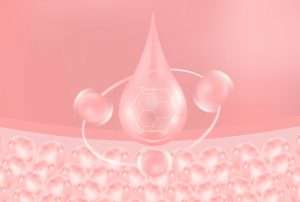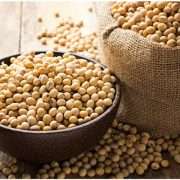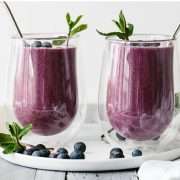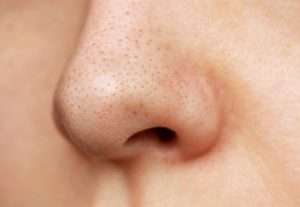How and Why Collagen Is Essential for Our Body – Types, Benefit and Sources

Our body is literally held together in place with the help of collagen. Collagen constitutes about 75% of the skin’s dry mass content. It is the most abundant protein found in the human body, making up almost 30% of the total protein content.
Collagen is needed to maintain the form and structure of our skin, cartilages and bones. It provides strength, elasticity and integrity to our body’s connective tissues and keeps them in place.
| Few Quick Facts on Collagen |
|
|
|
|
|
|
Percentage Distribution of Collagen in the Body
Skin – 75%
Collagen can constitute up to 75% of the skin’s dry mass content. It is a key component of the skin’s structure, collagen provides the infrastructure for elastin, helping it maintain elasticity and assists hydraulic acid to trap moisture.
Tendons – 85%
Tendons are tissues that connect muscles to bones. Its role is to withstand tension and transmit forces during muscle contraction. Tendons contain 85% of types I collagen and proteoglycans.
Joint Cartilage – 70%
Joint cartilage is made up of cellular building blocks called chondrocytes. These produce an extracellular matrix, consisting of collagen and proteoglycans, a kind of lubricant for the joints. Collagen fibers make up to 70% of cartilage and support its form and structure.
Bones – 90%
Collagen provides the structural framework for calcium and other minerals to function. The collagen consists of the softer part of your bones which is encased by the harder calcium mineral. Collagen represents around 90% of the organic bone mass. It not only supports strong bones but helps them move more freely.
Types of Collagen
There are four main types of collagen – type I, II, III and IV.
Here’s a closer look at the four main types of collagen and their roles in your body:
- Type I – as stated earlier 90% of your body’s collagen is Type I. This is the strongest type as it is made of densely packed fibers. It’s a structural component of the skin, bones, tendons, fibrous cartilage, connective tissue, and teeth. And can stretch a lot without breaking.
- Type II – This type is more loosely packed than type I and found in elastic cartilage, used for cushioning your joints.
- Type III – This type supports the structure of muscles, organs, and arteries in the body.
- Type IV – This type of majorly helps with filtration and is found in the different layers of your skin.
As you age, your body produces less collagen and the quality lowers eventually.
Benefits of Collagen Supplements
Our body can very well produce its own collagen but this natural tendency decreases along the way and starts affecting our bones, hair, nail, joints and other organs.
While most people are aware of only one or two benefits of taking collagen supplements, it doesn’t take long for them to reap on to the other benefits. This is because collagen is an essential structural support for the entire body.
1. Helps reduce cellulite and stretch marks

Cellulite is a condition in which there is a lack of collagen in the dermal layer of the skin, responsible for holding the fat in place. Too much fat and too little collagen can lead to cellulite formation.
Studies on middle-aged women have been proven to be helpful in reducing the impact of cellulite in thighs and an overall improvement in skin appearance.
2. Supports re-growth of joint tissues and relieves joint pain

Good collagen supplementation may help you with the agility in your joints, tendons, and ligaments, and less arthritic-like symptoms. It is especially helpful in the case of the elderly.
3. Collagen helps prevent bone loss

Throughout our lives; our bodies go through a constant cycle of bone collagen destruction and re-creation. This is the body’s way of maintaining a healthy structure.
Most osteoporosis (extreme case of bone loss) medication works by blocking the natural process of bone destruction. This seems to work in the short term but we’re long-term use of these medicines can result in an unhealthy bone matrix that is weak and brittle. Collagen supplements, on the other hand, can help stimulate the body to create more bone collagen.
4. Collagen helps reduce anxiety

Collagen helps reduce anxiety, making us more relaxed and able to cope with life’s ups and downs. This is mainly due the presence of glycine in collagen. Glycine is an amino acid that most of us lack in our diet. It has effective anti-anxiety properties.
5. Collagen prevents arteries from blocking

Arteries are the blood vessels that carry blood from the heart to the other organs. Most of the artery walls are made up of collagen. Stocking up on collagen can help prevent artery blockage.
6. Helps balance your hormones

Collagen can help control many mechanisms within the body. They ought to be functioning optimally for our overall well-being.
Collagen is a great source of amino acids -arginine, glutamine, glycine and proline and we need amino acids to produce healthy levels of hormones. Collagen can help to balance multiple hormones like insulin, cortisol, estrogen, testosterone, DHEA, melatonin, progesterone, and even the human growth hormone in our body.
Factors Contributing to Collagen Damage in the Body
- Excessive Sun Exposure: The sun is a major enemy of collagen. UV radiation diminishes collagen production from the skin. Therefore, practising safe sun exposure is advisable.
- Sugar and refined carbs: Too much sugar consumption interferes with collagen’s ability to repair itself. Now, you have one more reason to limit sugar intake.
- Smoking: Nicotine narrows the blood vessels in the outer layers of the skin. This reduces the delivery of nutrients and oxygen to the skin leading to dull and wrinkled skin. Smoking also impairs wound healing and aggravates wrinkles.
- Autoimmune Disorders: In some cases of autoimmune disorders, antibodies target collagen as pathogens.
- Genetic changes sometimes produce lower, dysfunctional, or mutated collagen.
- The aging process naturally causes collagen levels to deplete over time. This is an irreversible process.
Food Sources to Increase Collagen Production Naturally
A healthy diet can help boost collagen production. It is a great foundation to help your body keep cranking out the collagen.
Your body makes collagen by combining amino acids, glycine and proline – nutrients that you can get from eating protein-rich foods, like legumes, beans, whole wheat, nuts; chicken, fish, beans, eggs and dairy products.
This process also requires vitamin C, zinc and copper. You can get vitamin C by eating citrus fruits, red and green peppers, tomatoes, broccoli and greens.
Likewise, minerals can be found by eating whole grains, beans, nuts, meats, and shellfish.
Bone broths are an absolute favourite of many people wanting to improve their collagen levels. It is a highly rich source of collagen. Most bone broth recipes involve slow simmering of the bones in water — on the stove or in a crockpot — for one or two days.
That makes sense when you reckon that they’re made by boiling animal bones and connective tissues – body parts that have the highest concentration of collagen.
You can also buy OLENA’s Wholefood Collagen Supplement from Amazon here














